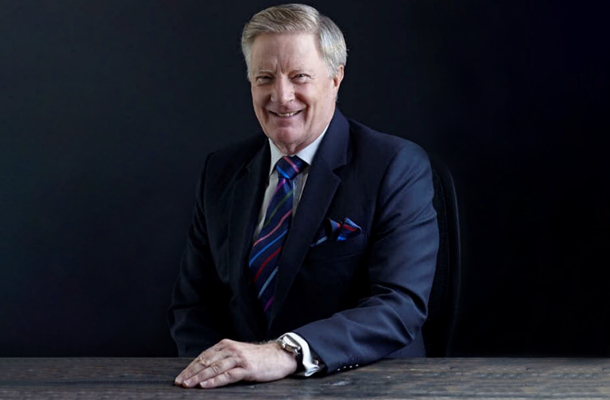
Executive summary
The Universal Business School Sydney (UBSS) commissioned Cyril Jankoff and Daniel Bendel to write a second book for them, a book on entrepreneurs. Its purpose is to give new local and international undergraduate and MBA students a feel of what everyday Australian business success looks like. To give a realistic view of successful entrepreneurship the authors chose 15 successful entrepreneurs and interviewed them. This is the 11th interview. Each interviewee was asked the same questions and later the authors reviewed all interviews and summarised the commonalities. The focus of the cases was on Sections III to VI.
Key points from the interview
- The most valuable element of a successful business is the customer, but not all customers are worth having.
- Beware of and respect your staff, your customers and those who refer work to you.
- Business is business, focus on providing the service that is the core of your business.
- Respect can mean minding your own business.
- When considering taking legal action, do so with your eyes wide open. Two parties involved always give a 50/50 chance.
- If you run out of cash that's the end of your business. Tradition, staff satisfaction, customer satisfaction, and social conscience, all amount to naught when you run out of cash.
- If your organisation comprises several divisions do a cost-benefit analysis to determine whether you should continue with all, some or none.
- Management by walking around is still the way. A visit to a workplace can tell you a lot.
- Just like joining a gym, being an entrepreneur will only work if you do. It’s a lifestyle decision — and so is starting a business.
- You won’t achieve your dream unless you plan, commit and follow through, even on days when you would rather stay in bed.
Alan Manly OAM
Alan Manly is the founder and managing director of Group Colleges of Australia (GCA), which includes the Universal Business School of Sydney (UBSS).
The Unlikely Entrepreneur.
The byline of Alan’s latest book “The Unlikely Entrepreneur” states “How you can start with nothing, break all the rules and create a business empire”. Like the title of his book, he indeed is an unlikely entrepreneur, but he became successful by utilising his skills and experience, and taking up opportunities as they came.
Alan is a Justice of the Peace (JP) and a Fellow of the Australian Institute of Company Directors (FAICD) and has over the years been active in representing the industry and is a former Director of the Australian Council of Private Education and Training (ACPET) and a former Board member of a national Higher Education industry representative body, now called the Independent Higher Education Australia (IHEA). Alan was honoured in the Queen’s Birthday 2021 Honours List with the Medal of the Order of Australia (OAM) for his contribution to tertiary education.
For further information see:
One of Alan’s many published articles is referenced in the below link. It is a quick summary of some salient lessons and harsh truths about business success that everyone thinking of going into business should read
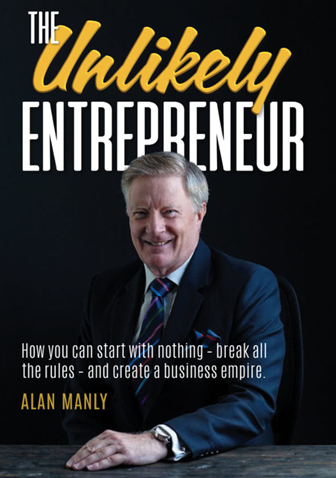
Cover of the “Unlikely Entrepreneur” Book.
In reviewing the book Ross Cameron, the Skynews “Outsiders” host summarised it well when he said, “This is business as it should be taught – in the raw. For those who want to act, not talk. Littered with gold nuggets.”
I. Key Dates
- 1960s: Bacchus Marsh High School Melbourne Victoria.
- 1971: Electronics RMIT University.
- 1977: Computer Engineer Boston USA.
- 1979 Promotion to Senior Executive position.
- 1986: Had an “entrepreneurial seizure” and left his corporate career to join a software company addressing the transport industry.
- 1988: Educational Holdings assigned a management contract for MBC School of Computer Studies to be located at 5 Belmore Street Burwood NSW 2134.
- 1989: MBC School of Computer Studies acquired by Educational Holdings. Alan Manly, Co-Director.
- 1990: Educational Holdings was renamed as NSW Business College. Alan’s wife Jenny McCarthy joined the NSW Business College management team. Later she became the GCA General Manager.
- 1996: Alan Manly and Jenny McCarthy resigned as NSW Business College Directors and Alan sold his shares. The NSW Business College was renamed Australia Business Technology Institute (ABTI) by its new owners.
- 1998: Group Colleges Australia (GCA) was established, with Alan as Managing Director.
- 2004: GCA celebrated its five years, and Central College was established as a major education exporter
- 2008: GCA, trading as Universal International College (UIC) Sydney, obtained its Higher Education Providers Licence. GCA commenced delivering the Bachelor of Accounting Degree. This was accredited by IPA Australia (Institute of Public Accountants) in 2009, CPA (Certified Practising Accountants) Australia and Chartered Accountants Australia & New Zealand (CA ANZ) in 2010.
- 2010: GCA relocated to a new 5,000 sqm building which was the former TNT Twin Towers at one 1 Lawson Square Redfern Sydney, an inner-city suburb.
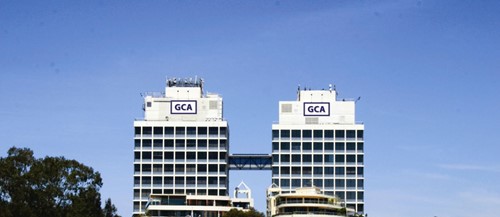
Group College of Australia (GCA)’s Redfern Sydney Campus (2010 to 2016)
- 2011: Alan’s book “When there are too many lawyers …” published. It is about a catastrophic legal disaster that very nearly bankrupted Alan. This was over a dispute relating to a $115 cheque, which resulted in 250 court appearances over a 10-year period cost him hundreds of thousands of dollars and nearly bankrupted his family. The journey went from the Local Court in North Sydney to the High Court of Australia. Alan and his co-defendant represented themselves and won all thirty-two cases. Along the way, the claimant was convicted of fraud and assault and ended up being declared a vexatious litigant.
- 2012: Renamed Universal International College Sydney to Universal Business School Sydney (UBSS).
- 2016: Relocation of colleges to the heart of Sydney's CBD: UBSS relocated to Levels 10 and 11 at 233 Castlereagh Street Sydney; Metro English College relocated to Level 4, 127 Liverpool Street Sydney; and Central College relocated to Level 5, 127 Liverpool Street Sydney.
- 2018: Alan’s book “The unlikely entrepreneur” published. It is about Alan’s story, which basically is “from an IT technician to the founder and owner of GCA / UBSS, Australia's 7th largest MBA school”.
- 2018: Group Colleges Australia (GCA) elected to change its strategic direction and decided to concentrate on higher education, being undergraduate and postgraduate courses and closed the Central College and Metro English Colleges in December of 2018.
- In June 2021 the UBSS Executive Delivery MBA expanded to Melbourne and is expected to soon follow with a Brisbane initiative.
- June 2021: Honoured in the Queen’s Birthday 2021 Honours List with the Medal of the Order of Australia (OAM).
- Late 2021: Group Colleges of Australia, trading as Universal Business School of Sydney, “UBSS”, is the nation’s 7th largest Master of Business Administration (MBA) school. With a successful expansion into Melbourne in June 2021 and a potential expansion soon in Brisbane Alan confidently expects UBSS to grow over time and have a higher ranking.
II. Getting to know the person?
1. What is success?
Alan summarises success as a “well provided for family”, that is providing security to his family. He explains that security is more than financial and includes psychological security. He gives the example that it may be better to live in an overcapitalised house in the area you feel comfortable in rather than a huge mansion where you “feel like a fish out of water”. He also stated that the above security may vary depending on the life stage of the key family members.
Authors’ note – See the Australian movie “The Castle” which explains this concept perfectly
He ended this question by saying that his company provides education in the form of an MBA for entrepreneurs, with his graduates going on to follow their dreams in business. Alan feels that with 500 graduates each year, his work is done.
2. What is your favourite TV show, movie or book and why?
- Television: Yes Minister, A Touch of Frost, History Channel
- Movie: The Castle
- Book: David Saul Alinsky’s Rules for Radicals: A Pragmatic Primer (1971).
3. What are your hobbies and/or interests?
His hobby is business. Alan is also very interested in politics. He enjoys those cleverly made television shows such as Yes Minister and the History Channel, as well as David Saul Alinsky’s book that discusses issues on our big-picture social structures.
II. Tips
4. How did you get through your worst times?
An article that discusses his worst times. “When Sydney businessman Alan Manly received an unexpected invoice for $115, he had no idea it would lead to a 10-year court battle and end up costing him hundreds of thousands of dollars. What the then not-for-profit director thought would be a simple bill dispute spiralled out of control and ended up in Australia’s highest court with the epic battle costing him, his business partner Julian Day, and his family in more ways than one. Representing themselves, the pair endured 250 court appearances over 34 cases that Mr Manly estimates cost him in excess of $200,000 and millions in opportunity costs over the ten years. It was “very costly socially as well”. “I was at a point in my life where I was a successful businessman in my 40s. I had a house in a middle-class suburb with a swimming pool out the back and a Mercedes Benz in the driveway, and it all fell apart. I was devastated.”
When asked about how he got through his worst times Alan responded that “he needed therapy”, and that is why he wrote the “When there are too many lawyers” Book.
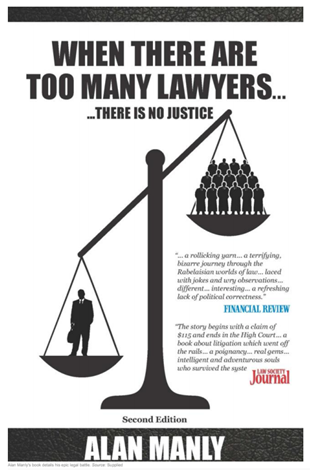
Cover of the “When there are too many lawyers” book.
He said while writing the book was difficult, it was a liberating experience and allowed him to put the tumultuous decade behind him. He said the whole experience still haunted him. “It took 10 of the best years of our lives,” and “I was on the brink of bankruptcy, it left my entire family traumatised. It was only after I read the ninth manuscript of the book that I could do so without crying.” And while he certainly isn’t anti-lawyer and uses them in business dealings, he has one word of advice for anyone considering taking legal action. “Do it with your eyes wide open,” he said.
Knowing that this interview will be read by students considering higher studies, going into business or both, Alan elaborated saying that the “10-year court battle” was an unfortunate situation where he was trapped and felt he could only move with the tide. He said normally the hero is a person who volunteers to risk his or her life for others but here he did not volunteer but was trapped, and as the legal cases progressed, and the legal fees added up, he began feeling more and more like a failure. Alan said that he was lucky that he did not lose the family’s house and all their possessions.
5. What keeps your awake at night?
Alan said that after all these years cash flow still keeps him awake. To this day his office still provides him with a daily cash flow analysis. After what he experienced with his court cases, he has an insecurity regarding cash flow. He dryly states: “If your money ends so does your business”.
6. What are you typical daily routines?
Alan said that his daily office routine is:
- Check emails.
- Communicate with people as to what needs to be done, starting with the most important issues.
- Where necessary he will consult with one of his two key executives.
7. What advice would you give yourself starting out?
He advised:
- The most valuable element of a successful business is the customer. Run an ad for staff and many apply. Running an ad to attract customers is always a much bigger challenge, observing that staff are much easier to obtain than customers.
- Not all customers are worth having. If they are not prepared to pay in full, or pay on time for your goods and services, they may be costing more than they are worth and thus you may want to get rid of them.
- Focus on cash flow, cash flow, cash flow, and then cash flow, as with a strong cash flow you can keep trading. A business collapses when it run out of cash. Tradition, staff satisfaction, customer satisfaction, social conscience, all amount to naught when you run out of cash.
- The CEO’s office is potentially the happiest room in the building, and this is not necessarily a good thing because there are many people bringing only good news. It is important to focus on the goals of that department to avoid being distracted and drowned in only good news.
- “If you don’t go, you won’t know”. Management by walking around is still the way. A visit to a workplace can tell you a lot. He especially looks for the “vibe” as he feels that it can tell you so much about the organisation.
- Look, and take, opportunities. He has done this over and over in his career.
IV. Business case examples
8. Provide a case you managed well and why?
As we saw in the chronology at the beginning of this interview, in 2010 GCA moved into the 5000 square meter Redfern buildings campus. Because it had 5000 students it was a very busy place, as the campus had a high school, an English college, a vocational education college and higher education school. This created problems including noise, where noisy high school kids were not compatible with MBA students. Alan considered the matter and closed the high school down. The organisation’s headquarters left Redfern in 2016 and went to its current premises, at 233 Castlereagh street Sydney. The organisation was reduced to three campuses:
- The Metro English College at Level 4, 127 Liverpool Street Sydney.
- The vocational education Central College at Level 5, 127 Liverpool Street Sydney.
- Higher education at 233 Castlereagh Street Sydney.
The three new individual campuses allowed exacting cost analysis. Alan made a simple cost benefit analysis of each of the campuses. From this analysis it became quite clear that a focus on the higher education component was sensible as it was relatively easy to run, it was profitable and had a good future. From this analysis it became a simple process of keeping the higher education campus and closing the other two campuses. As all three were owned by the same entity it would have been too difficult legally to sell the two unwanted businesses and in December 2018 they were simply closed down. Having closed the two businesses down meant that three quarters of the organisation’s staff were retrenched. Alan organised that a very senior executive in the company of external experts spoke to each staff member in order to explain the situation stating it wasn't personal but business and assisted staff in their transition out of the organisation.
9. Provide a case that did not go well and why?
The organisation recently set up a satellite campus in Thailand to test the market for online learning. However, online learning was traditionally not permitted in Thailand causing some difficulties, with client acceptance. COVID fortunately changed the reality such that online learning is now allowed and had to be accepted. The whole project was expensive and time consuming. One benefit from this venture is that this enhanced the research and development for the running of other satellite campuses and online courses without damaging the core business.
10. What conclusions can be drawn by comparing these cases?
- In the case of the Sydney campuses, the locations developed organically and with a systematic approach.
- By contrast the Thailand experiment was a little rushed and it would have been easier, less expensive and better to set up an online satellite Melbourne campus, than to go overseas to set this up. But the risk would have been learning in your home market.
11. What cultural issues did you experience? How were they overcome? How is Australia different? Were these cases affected by cultural issues?Alan considers that within UBSS the organisation experienced a number of cultural issues including:
- Students: the organisation has students to from 30 different countries and the number of students and countries of origin is growing due to its focus on the “customers”, that is the students. Alan says he expects his staff to be professional in their appearance as in dress professionally, and behaviour and expects high quality teaching from staff. Specifically, he advises staff that the following are compulsory (noting that what he expects often does not occur in Australian universities): his staff must wear a suit and tie (or female equivalent); staff cannot be absent from classes except for exceptional reasons; students are to be treated like customers; and what is taught today needs to be able to be used at work tomorrow.
- Staff: Alan stated that many staff are from overseas. He said that staff are treated well, and there are many cultural differences in the organisation. An Asian staff member was asked about working at the organisation. She responded stating that she liked many things including that the CEO, Alan, says hello noting that in Asia this does not often occur, and feels that this is proof of mutual respect. Other positive things are that the organisation is very structured and is essentially a family business.
- Students and Staff: When one walks through the office one sees the Australian flag. Alan stressed that this is because the business is about international education but with a focus on Australia. Alan notes that students and staff are very keen on this international flavour, and inclusive way the business is run. He points to the low staff turnover rate as an indicator that staff are happy.
- Overseas Agents (They co-ordinate and recommend the UBSS courses to overseas students: In addition to staff and students, which were discussed above, he states the other key group is agents. The organisation invests significant time to educate, develop and build links with good Agents. They are vitally important to the success of the GCA / UBSS.
- Online learning: The organisation’s online learning has been very successful. The Deloittes university survey showed 70% student satisfaction, but with Alan’s organisation it has been an outstanding 90% satisfaction.
V. Volatility (for example COVID-19)
12. How has volatility affected your business?
Unfortunately, the COVID-19 pandemic has hit the business hard. In August 2021 its revenues were down 60% from pre-pandemic times. However, from the outset the organisation was mindful of managing risk and did several sensible things. The first is that it sought students from a diverse range of countries, and this was very helpful when the China sought to dissuade students from studying in Australia. The second was sourcing local and overseas students living locally (referred to as onshore students). This latter strategy helped to mitigate against the loss of students due to COVID prevention measures which closed international borders. Some of the Australian universities have had major problems due to students being unable to attend Australian universities, and thus had to let substantial numbers of staff go. It is to the credit of the organisation that not one staff member has been let go during the current pandemic.
13. What lasting impact do you think it will have on your business?
The impact has been significant. Australian international education is a $40 billion export business which quickly halved. Fortunately, classes can still be taught online but the revenue to the various education providers, and indeed the country, is substantially less than it was prior to the pandemic.
14. What have you learned from it that you will now implement in your business?
The organisation has learnt the importance of being flexible in managing the online and blended learning settings and being able to quickly adapt to changes going on around them.
VI. Family business
15. Are you in a family business and from your experience what do you think are the advantages and disadvantages of family working in the business?
Alan does not really see the organisation (that is, GCA / UBSS) currently as being a family business. Alan’s wife, Jennifer was working in the business and took a very active role in the business helping to get the higher education licence. She has since retired. Alan’s son, James only works part time at UBSS.
Alan is positive about the strengths and culture of a family business and thinks it is a powerful way to run a business as long as the appropriate advice and expertise is properly considered. It may of course be a benevolent dictatorship. Interestingly this is not unwelcomed to a customer base for Asia.
Authors’ note – Alan’s attitude about the strengths is not dissimilar to that of many other interviewees.
Authors:
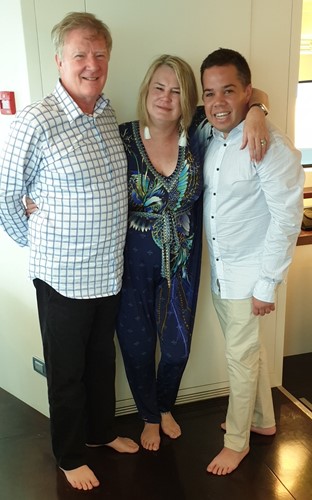
Alan, Jennifer and James Manly




